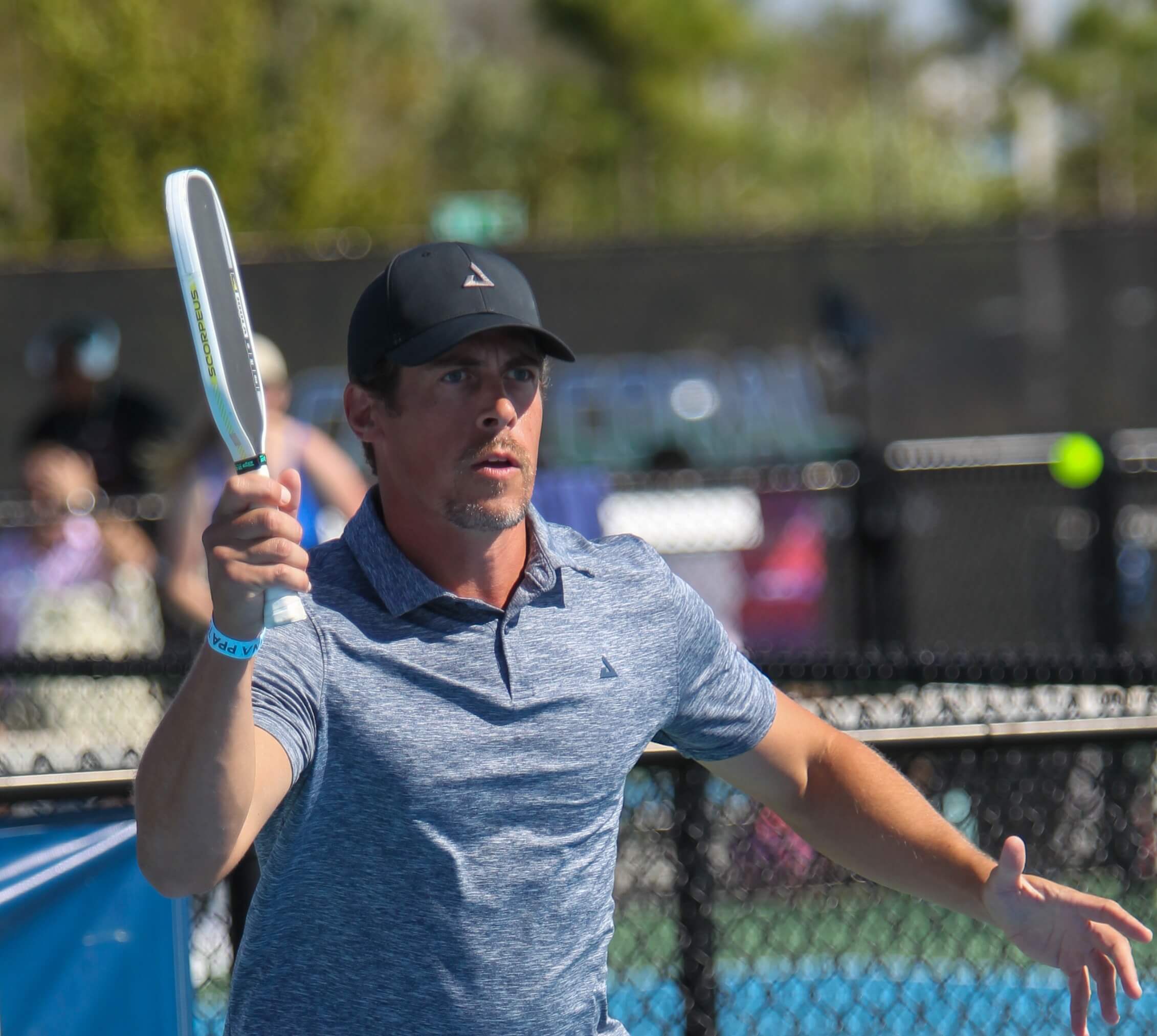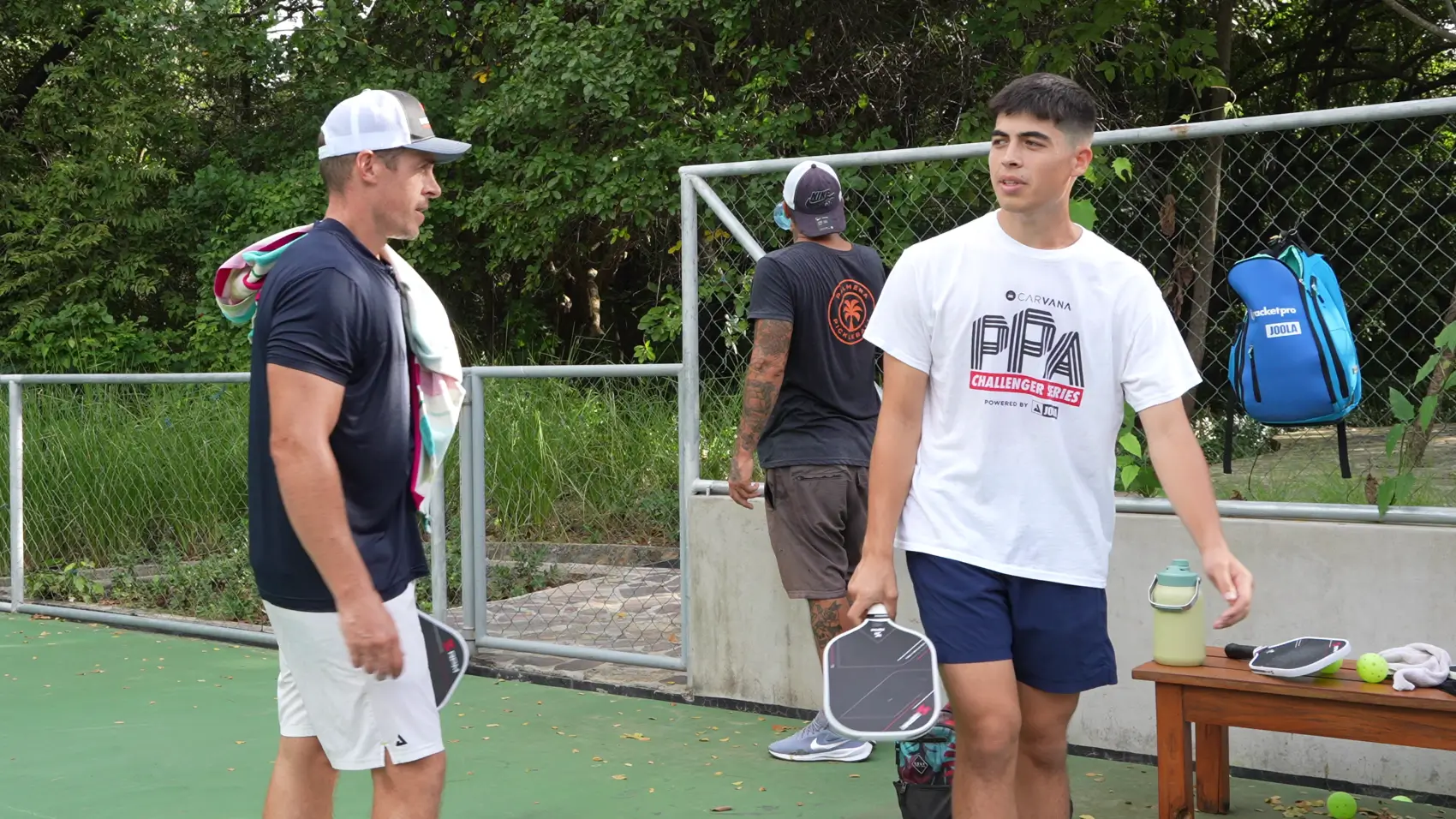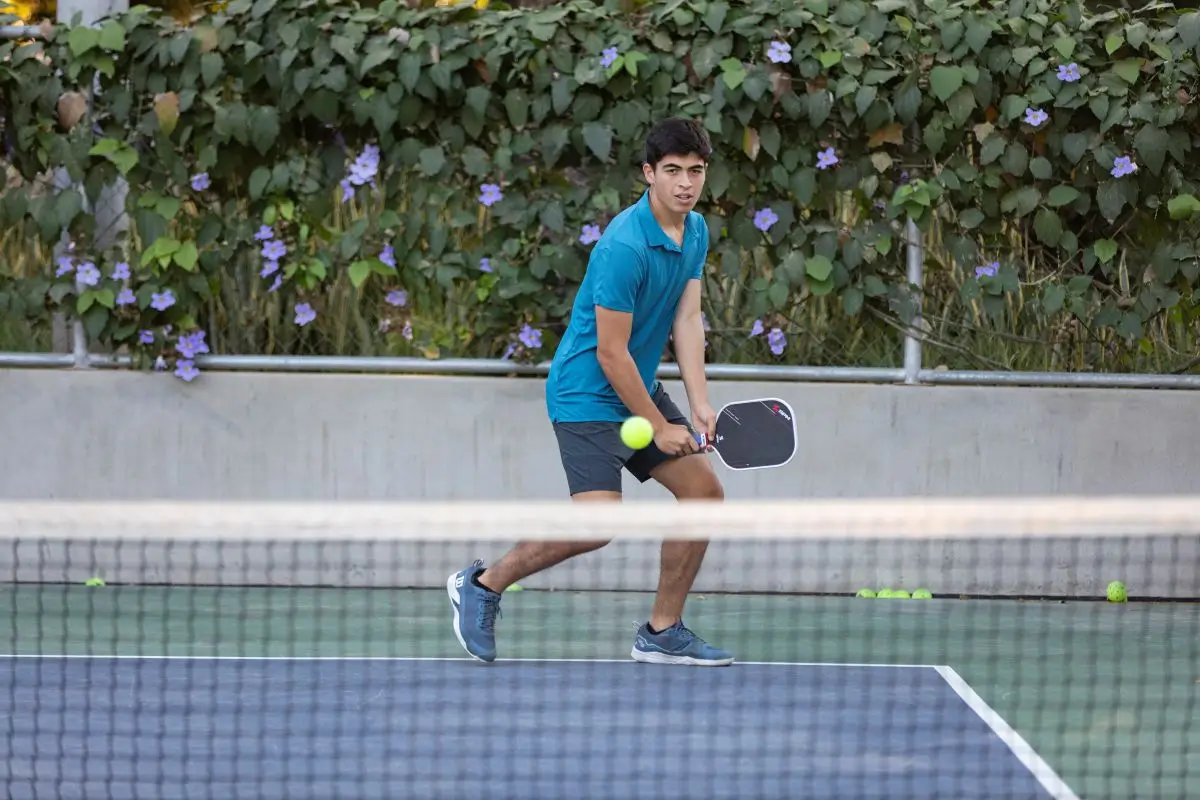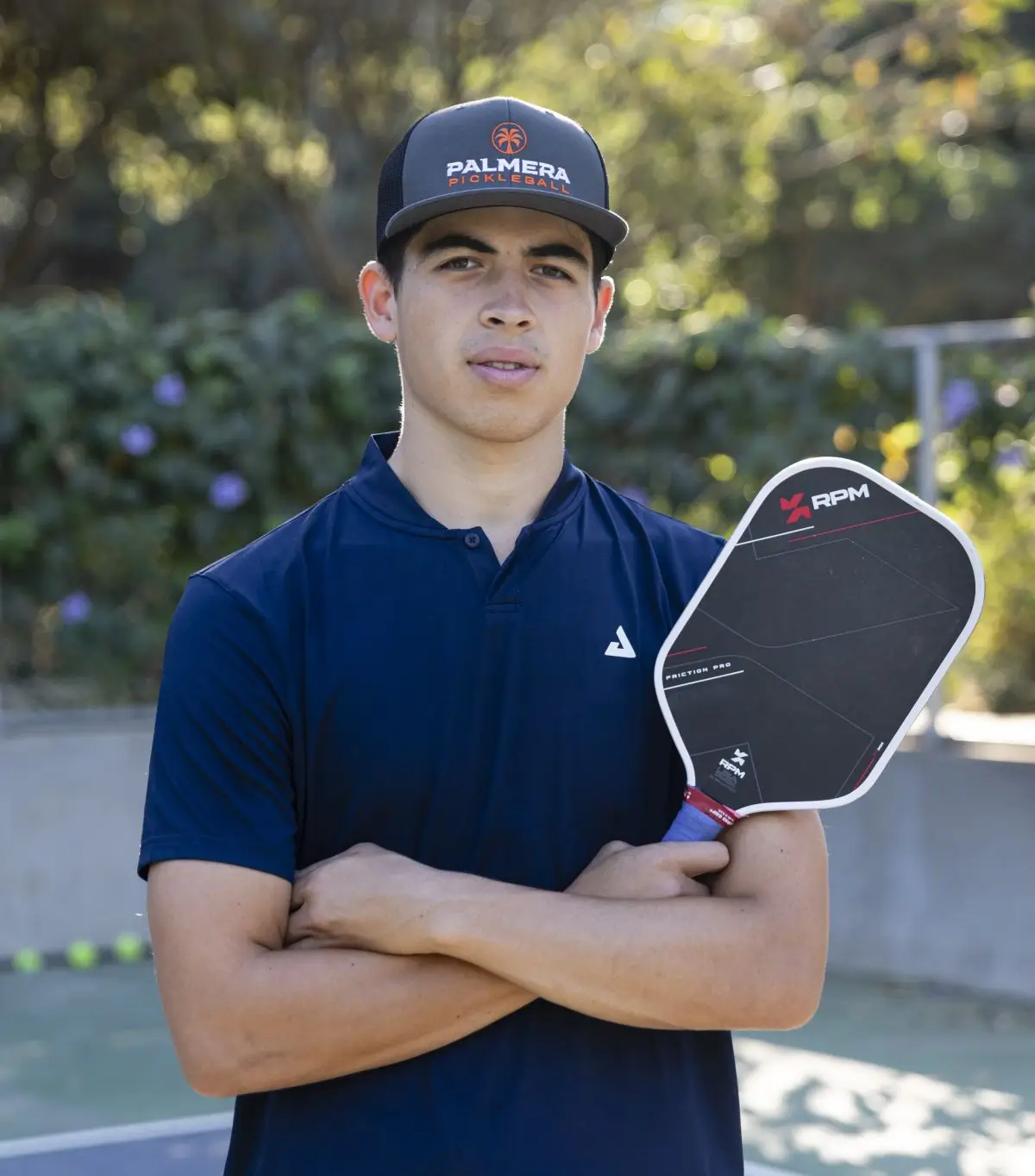The Palmera Vision: Pickleball and Individuation
Discover how pickleball becomes more than just a game—it's a catalyst for self-awareness, personal growth, and individuation. In this visionary piece from Palmera Pickleball CEO Geoff Bourgeois, explore the deeper psychology behind play, competition, and building a global destination for human development through sport.
.webp)
This piece is a vision statement from the CEO of Palmera Pickleball, exploring the mission, passion, and long-range purpose behind the Palmera Pickleball ecosystem. It’s about more than courts—it’s about creating a movement through sport, psychology, luxury, and human development.
Let’s be honest: you don’t pick up a paddle and walk onto a pickleball court because you’re hunting for a spiritual awakening. You’re here to have fun. And you do—pickleball is a blast. It’s joyful, fast, social, a little silly, surprisingly athletic (especially singles), and deeply addicting.
But here’s the twist most people don’t see coming: buried beneath the dopamine hits of rallies and winners, something else starts to surface—a journey inward.
Pickleball makes us feel alive, not just physically—but psychologically.
If you play long enough, especially in doubles (which, let’s be honest, makes up 80 to 90 percent of all games), something starts to happen. It’s subtle at first: you feel tension when you miss an easy shot. You wince when your partner rolls their eyes. You notice that you care—a little too much—about whether you’re the best or worst player on the court.
This isn’t just competition. This is exposure. You’re seeing yourself in action, in real time. Not just your forehand, but your ego. Your triggers. Your insecurities. Your resilience.
Welcome to pickleball. And, if you're willing to see it: Welcome to individuation.
What is Individuation?
Carl Jung coined the term individuation to describe the process of becoming fully oneself—of integrating all aspects of the psyche, conscious and unconscious, into a coherent whole. It’s the path from fragmentation to wholeness.
Most people will never walk that path intentionally. But some stumble onto it by accident.
Pickleball, as strange as it sounds, has become a modern gateway drug into self-awareness.
It’s not therapy. It’s not a retreat. But it acts like one. It’s affordable, accessible, and most importantly—repetitive. The sheer number of reps, the micro-dramas of each point, the subtle social politics of doubles—all of it creates an environment ripe for introspection. Especially for players in their 40s and beyond, who are re-evaluating their lives, priorities, and physicality.
We’ve seen it firsthand at Palmera Pickleball.
The Mechanics of Exposure
- Low Barrier to Entry: The game is easy to pick up, which makes it immediately rewarding.
- Social Dynamics: Doubles play brings ego, cooperation, and interpersonal tension into every point.
- High Reps: More touches per rally mean more opportunities to see yourself under pressure.
- Play as Mirror: Play, as a psychological function (per Johan Huizinga, Brian Sutton-Smith, and others), reveals our patterns in ways that language alone cannot.
You can’t hide in pickleball. Not for long. The court is too small. The rallies too frequent. The stakes just high enough to matter.
Not a Pandora’s Box—But a Portal
Let’s not call this a Pandora’s box. That metaphor is too ominous. Instead, imagine it as a hallway with a door slightly ajar. You peek in, and you realize—there’s a whole room in your psyche you didn’t know existed. A room filled with unexplored habits, emotions, beliefs, and competitive instincts.
For some, that realization leads to deeper work. They begin to explore not just how to win more games—but why they care so much. They start asking better questions:
- Why do I collapse under pressure?
- Why do I play better with certain partners?
- Why do I repeat the same mistake when I know better?
This is the start of individuation: the uncovering of hidden parts of the self. And it all begins with a $100 paddle and a plastic ball.
Pickleball, as strange as it sounds, has become a modern gateway drug into self-awareness.
Palmera’s Approach: Play, Perform, Become
At Palmera Pickleball, we’ve recognized this psychological undercurrent from day one. That’s why we’re building something more than just a venue. We’re building a destination ecosystem:
- Pristine courts, indoors with perfect lighting, acoustics, and space.
- Luxury amenities: lounge seating, café, co-working, gym, therapies, podcast studio.
- Vicarious experience studios with slow-motion highlight reels and somatic therapies.
- Digital Academy offering structured content from game patterns to shot techniques, from conditioning to recovery, and from performance psychology to individuation.
But here’s the key: we’re not becoming a psychotherapy service. We are not in the business of storing sensitive mental health data. That’s a line we don’t cross.
Instead, we’re building a content layer—a structured, thoughtful, and emotionally safe digital exploration of the inner game. Think podcasts, blogs, video courses, interviews with elite athletes and sports psychologists, and even books. No patient files. Just insights and frameworks for those who want them.
The Scene We’re Building
What happens when you combine the addictive joy of pickleball with elite-level facilities, intellectual coaching, and vacation-level vibes?
You get a new kind of scene:
- A global hub for high-performance lifestyle athletes and luxury pickleball vacationers.
- A philanthropic engine, giving back through purpose-driven programs.
- A training ground for self-efficacy, resilience, and community.
Call it sports psychology meets conscious capitalism. Call it luxury meets meaning. Call it whatever you want. But it’s real, and it’s coming.
Final Thought: The Hidden Hook
Why are people so hooked on pickleball?
Yes, it’s fun. Yes, it’s social. Yes, it’s accessible.
But beneath all that, I believe the real hook is growth. Pickleball makes us feel alive, not just physically—but psychologically. It demands we deal with pressure, that we learn, that we adapt, and that we understand and work on our strengths and weaknesses.
It gives us the gift of play—and play, when done right, becomes the greatest teacher of all.
“Pickleball isn’t just a game—it’s a mirror. It exposes who we are under pressure, and for those who keep showing up, it becomes a path to self-mastery.”
—
Geoff Bourgeois
CEO, Palmera Sports
Building the world's most advanced pickleball destination—for mind, body, and the journey between.






